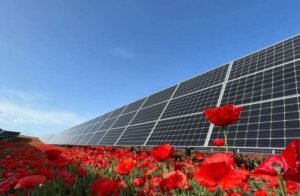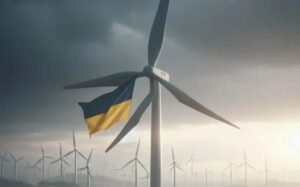Spain demands in the EU “strong objectives” of renewables and a reduction of CO2 in 2040

The aim is to send “a clear signal from Europe that gives certainty,” Aagesen said
The Spanish third Vice-president and Minister for the Ecological Transition, Sara Aagesen, has advocated for the European Union (EU) to adopt a CO2 reduction target of 90% in 2040 compared to 1990 and for “strong objectives” in terms of the use of renewable energy also for that year.
“The ecological transition and the green pact are levers for competitiveness, well-being and a prosperous and secure Europe,” Aagesen said at the Council of European Energy ministers being held in Brussels.
According to the third vice-president, the EU needs “strong targets” on renewable energies by 2040 and a 90% reduction in greenhouse gas emissions also by 2040.
Spain’s position on renewables and CO2 emissions
The aim is to send “a clear signal from Europe that gives certainty,” Aagesen said, in line with Germany’s argument that it is necessary to promote “a united Europe” and “an agile and effective response” in a complex geopolitical context.
The European Commission proposed a year ago that the EU should set a 90% reduction target by 2040, which would mean a linear trajectory with respect to the mandatory 55% cut set for 2030 and would contribute to approaching the legal goal of achieving climate neutrality by 2050.
Now countries must approve or reject that milestone.
On the other hand, in the debate with her counterparts regarding competitiveness, in the light of the latest reflections and plans of the European Commission to try to make energy cheaper in the EU, the Spanish minister has advocated adopting “structural measures rather than those based on the fiscal margin of the Member States”.
Aagesen has also referred to the need to create physical infrastructures”, in relation to the will of Spain, Portugal and the European Commission to increase interconnections between the Iberian Peninsula and France, which are “fundamental as a necessary condition for an energy union”; and has defended resorting to “pooled European financing”.
In his opinion, we must be “very prepared for crisis situations” and he has asked to “continue working on decoupling the price of gas from electricity” and keep in reserve measures “that have worked extraordinarily” such as the Iberian mechanism in Spain and Portugal to make electricity cheaper.




